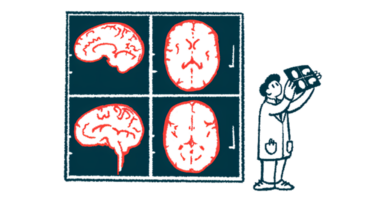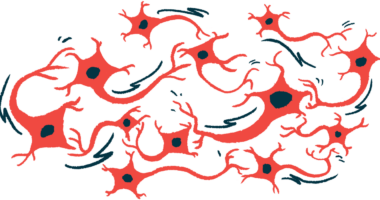Fosgonimeton shows potential as dementia treatment, Athira says
Clinical, preclinical data show cognitive benefits, safety, and efficacy

Athira Pharma’s fosgonimeton (ATH-1017) shows promise as a therapy for neurodegenerative conditions including Parkinson’s disease, according to data presented at the recent International Conference on Alzheimer’s and Parkinson’s Diseases and Related Neurological Disorders (AD/PD 2024), in Portugal.
The investigational small molecule demonstrated “encouraging pro-cognitive effects” in the exploratory SHAPE Phase 2 trial (NCT04831281), which assessed the therapy’s safety and efficacy in people with Parkinson’s disease or dementia with Lewy bodies, Mark Litton, PhD, Athira’s president and CEO, said in a company press release. The treatment was also shown to be safe and well tolerated.
“We believe safety and efficacy outcomes” from that trial, “along with previous clinical data, support the continued development of fosgonimeton,” Litton said.
Abnormal protein clumps known as Lewy bodies in brain cells are one of the underlying causes of Parkinson’s and dementia with Lewy bodies. They are named after neurologist Friedrich Lewy, who first described them. In Parkinson’s patients, Lewy bodies are mainly composed of the alpha-synuclein protein and are toxic to neurons (nerve cells), leading to a range of motor and nonmotor symptoms, including cognitive impairment.
Fosgonimeton is a brain-penetrant small molecule designed to activate signaling of the hepatocyte growth factor (HGF), a protein that helps neurons survive and form new connections, improving brain health and function. The investigational therapy is also being tested in the LIFT-AD Phase 2/3 trial (NCT04488419) in patients with mild to moderate Alzheimer’s disease.
Fosgonimeton boosted motor skills in rats, mice
Preclinical data showed the therapy increased the survival of neurons maintained in the lab under controlled conditions and against neurotoxic insults, and decreased the accumulation of alpha-synuclein. In a rat model of Parkinson’s, the therapy was found to improve motor function and coordination.
The data show fosgonimeton’s ability “to mitigate pathological alterations associated with a-synuclein toxicity in vitro and in vivo,” said Kevin Church, PhD, chief scientific officer of Athira. It “improved motor function, promoted dopaminergic neuron survival, and reduced [alpha]-synuclein aggregation” in an aged mouse model of Parkinson’s that included alpha-synuclein pathology, he said.
In Alzheimer’s disease models, “key results showed that the neuroprotective effects of fosgonimeton against glutamate toxicity in vitro are driven, in part, by activation of pro-survival signaling pathways that may help to counteract neurodegenerative hallmarks,” Church said.
The SHAPE trial enrolled 28 patients, 40 to 85 years old, who were given the treatment once daily via subcutaneous (under-the-skin) injections of 40 mg or 70 mg, or a placebo, for about six months.
Primary goal not met, but results suggest cognitive gains
The trial didn’t meet its primary goal, defined as a combined score of brain activity (assessed by ERP P300 latency, or event-related potential P300 latency) and cognitive function (assessed by ADAS-Cog13, which stands for Alzheimer’s Disease Assessment Scale-Cognitive Subscale version 13). However, changes in ADAS-Cog13 in patients given the 40 mg dose suggested it improved cognitive function.
ERP P300 latency measures how quickly the brain responds. The ADAS-Cog13 is a way of measuring and evaluating cognitive function, with a score of zero indicating the least impairment and 85 the most severe.
The new data showed patients on 40 mg of fosgonimeton had a significant reduction — 7.2 points in ADAS-Cog13 — compared with those who received a placebo. Researchers said it was the first time this effect has been shown in Parkinson’s disease or dementia with Lewy bodies.
“The encouraging pro-cognitive effects observed in the 40 mg dose group … underscore our confidence in the Phase 2/3 LIFT-AD trial, which is evaluating fosgonimeton at 40 mg as a potential treatment for mild to moderate Alzheimer’s disease, with data expected in the second half of 2024,” Litton said.
The most common treatment-related adverse event was reaction at the injection site.
“This continued research of fosgonimeton adds to the body of evidence that positive modulation of the neurotrophic [hepatocyte growth factor] HGF system is a potential therapeutic approach for Parkinson’s and other neurodegenerative diseases,” Church said.








